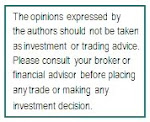For the second time in December, Jon Corzine, former head of the now defunct MF Global, met with the senate to further explain his involvement with the missing customer funds. This time, he was accompanied by two MF Global executives, COO, Bradley Abelow and CFO, Henri Steenkamp, who also claimed to know nothing about the money. I find this very curious, since most brokerage firms have policies in place that limit check writing and transfer-of-money authority to upper management, with additional authorization from the CFO, or Treasurer in his or her absence. The Senate hearing did not turn up anything that would satisfy investigators or investors. Nevertheless frustrated Farmers (primary investors in land commodities) were able to voice their disdain for MF Global, and one in particular was quoted as saying "What they call 'unlawful comingling' on Wall Street is called 'stealing' back on Main Street,"
Jon Corzine admitted that there was a "break glass" contingency plan in place, but did not disclose the details of the emergency plan. After questions intensified, he denied that raiding the customer funds was one of the recommendations in the emergency plan. According to Corzine, he did not know what happened to the money, and proclaims that he did not direct anyone to misuse customer funds. Corzine tried his best to convince the Senate Agricultural Committee that he did not "intend" to break any rules concerning the handling of customer funds, with respect to keeping customer funds segregated from the firm's money. This is reference to the requirement of all commodities and futures trading firms to segregate customer funds from company money. According to the CMEgroup.com, (Watchdog for Commodities and Futures Industry) segregating the funds protects investors in the event of defaults or bankruptcy. This regulation has a major advantage for investors, because when a company files for bankruptcy (as in the case of MF Global) , investors are last on the list, behind creditors, to see any of their money - particularly because it's next to impossible to identify how much of the company's assets belongs to the customers. Segregated funds facilitate the process of identifying which accounts belong to investors, thus investors will be able to recoup their funds without much delay. Apparently the "Segregation of Funds" regulation was not practiced at MF Global. Corzine went so far as to explain that perhaps an employee misinterpreted his instructions in an effort to try to save the company. The former CEO conveyed to the Senate subcommittee that he was not aware of any problem with segregated funds until October 30th, the day before they filed for bankruptcy.In a new twist to this already redundant story of fraud, greed and entitlement, the Federal Authorities investigating the collapse of MF Global are now turning their attention toward one of the Wall Street watchdogs. Since MF Global was a Commodities brokerage firm, their primary regulator should have been the CME Group. The Commodities Futures and Exchange Commission is leading the investigation to examine CME's conduct before MF Global filed for bankruptcy protection. If the CME Group is the commodities regulator safeguarding customer’s money, what were they doing instead?
The downfall of MF Global (and Corzine’s career) is yet another display of Wall Street greed and deception. The bottom line is, Corzine should be held accountable regardless of whether or not he "directed" anyone to move funds. In his effort to exonerate an employee, he painted a vivid picture of the company culture. The firm's inattention to compliance, without regard for their customers" protection is inexcusable. As I've stated previously in an article concerning Corzine and MF Global, the fact that he turned down the severance pay is almost an admission of guilt for some aspect of the company's downfall. I’ll continue watching this case closely to see where the investigation of the CME Group and the search for the missing $1.2 billion leads. Fortunately, the Wall Street Journal reported that the judge overseeing the bankruptcy case has approved $4.1 billion to be returned to the customers, of which $2.2 billion in frozen customer accounts will be released.
Cohn-Reilly Report posted an article about the obvious under story of misguided ambitions of Jon Corzine, prior to the reports of mission funds. Corzine’s blind Ambition
Back to Home Page
K. Reilly
The Cohn-Reilly Report
www.Facebook.com/Cohn.Reilly

































































